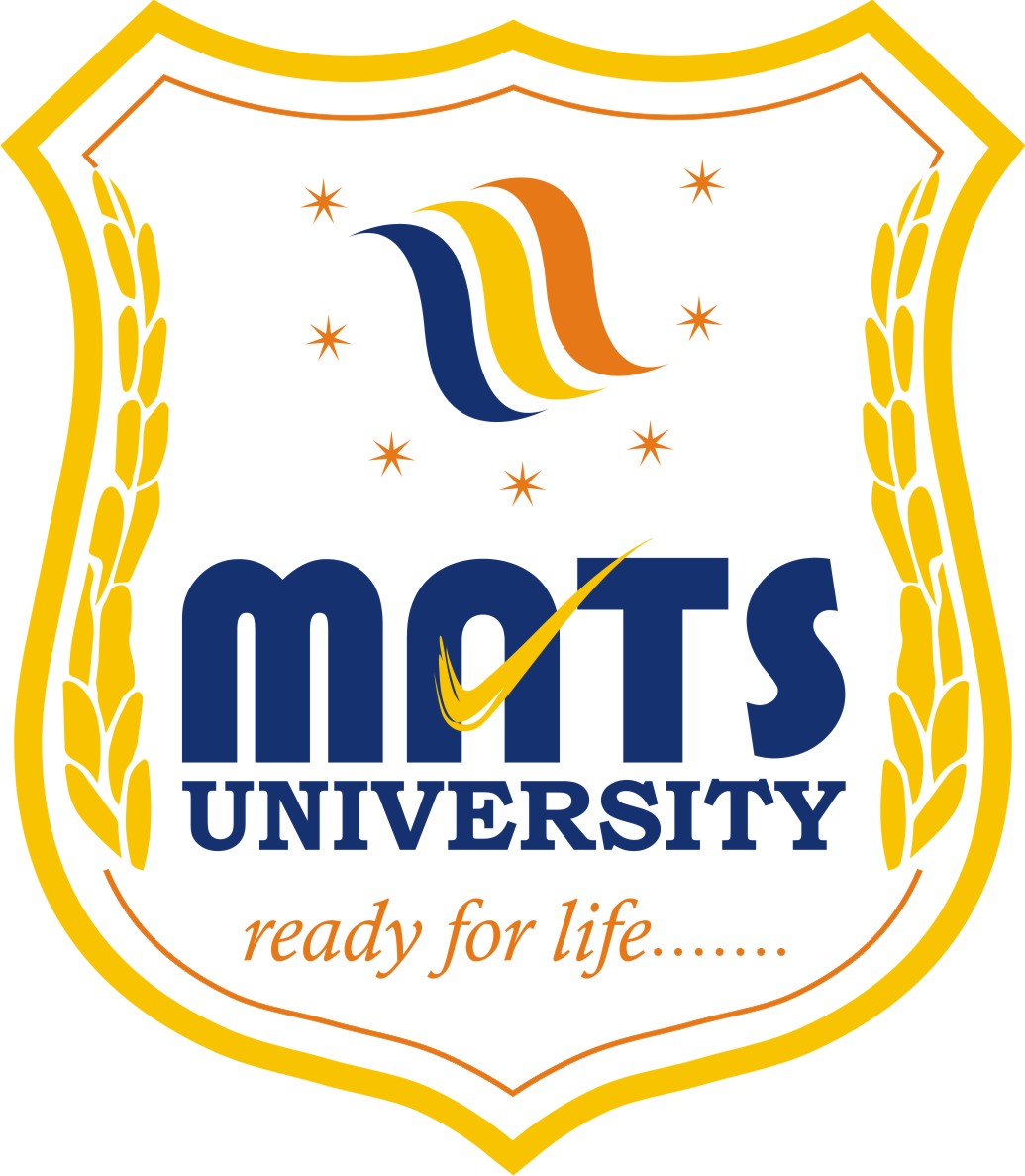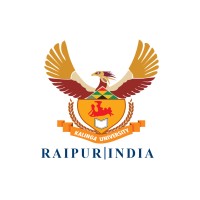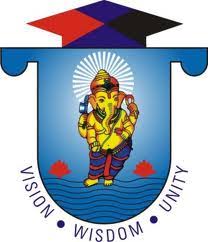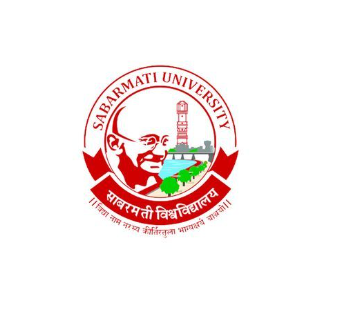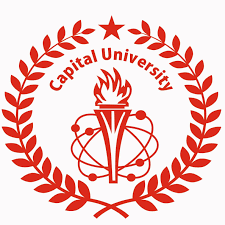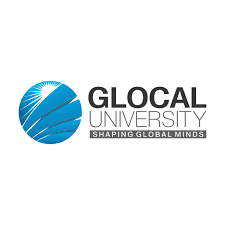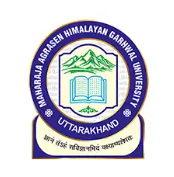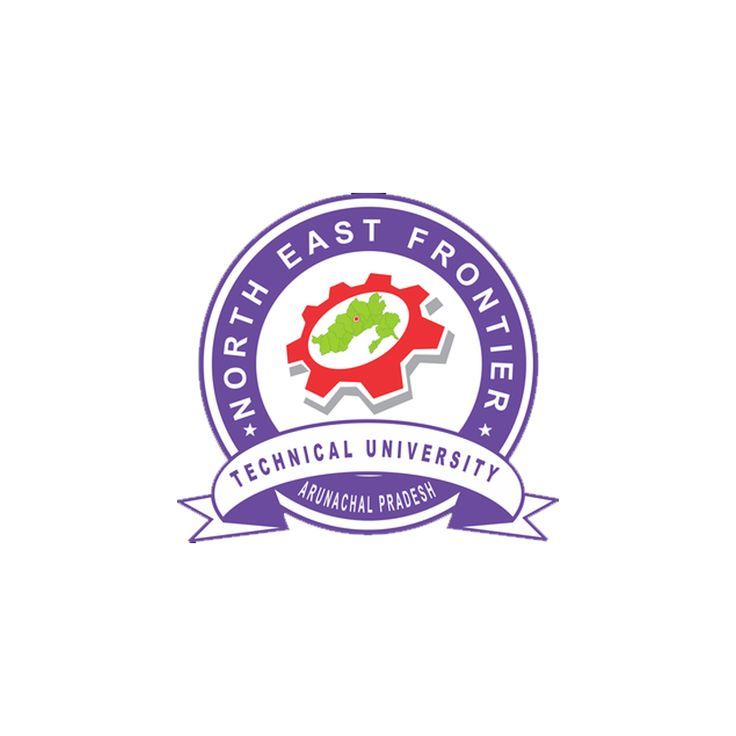Post Graduate Diploma in Research Methodology and Statistics Course Admission 2024-25 - Shikshaglobe

Develop a strong foundation in the proposition and practice of data wisdom, and learn specialist chops in statistics.
Data wisdom is decreasingly important to the global frugality and is impacting scientific progress across multitudinous fields from bioscience, to energy and telecommunications. We will give you with the tools to come an assiduity expert with a strong fine foundation.
Who's this course for?
This course is designed for graduates who have limited experience of statistics and would like to develop their knowledge in this area. The first semester will give you general programming and machine literacy development chops. The alternate semester is concentrated on statistics, and will give you the chops and knowledge to challenge real- world data using more advanced logical ways.
Read More: Post Graduate Diploma in Rehabilitation Psychology
Course highlights
Work with a devoted platoon of computer scientists and mathematicians who have a wealth of experience from their professional backgrounds.
Learn strong statistical foundations of universal applicability as well as gaining moxie in statistics and probabilistic modelling, including the design, collection, analysis and donation of data.
Study machine literacy ways and software technologies central to putting this knowledge into practice, addressing the challenges of small and large data sets.
Be part of our probative postgraduate community.
Live and study in a beautiful world heritage megacity.
The Importance of Post Graduate Diploma in Research
Methodology and Statistics in Today's World
In today's data-driven world, the field of research
methodology and statistics plays a crucial role in various industries. A
post-graduate diploma in research methodology and statistics provides
individuals with the necessary skills and knowledge to conduct high-quality research,
analyze data effectively, and make informed decisions. This article explores
the significance of pursuing a post-graduate diploma in research methodologyand statistics and how it can benefit individuals in their personal and
professional lives.
Exploring Different Types of Post Graduate Diploma in
Research Methodology and Statistics
There are several different types of post-graduate diplomas
in research methodology and statistics available, each tailored to specific
areas of study and career goals. Some of the common types include:
- Diploma
in Applied Research Methods: This program focuses on applying research
methodologies to practical problems and scenarios, equipping students with
hands-on research skills.
- Diploma
in Statistical Analysis: This specialization focuses on advanced
statistical techniques, enabling individuals to analyze complex data sets
and draw meaningful conclusions.
- Diploma
in Qualitative Research Methods: This program emphasizes qualitative
research methodologies, such as interviews and focus groups, enabling
students to gain deep insights into human behavior and experiences.
- Diploma
in Quantitative Research Methods: This specialization focuses on
quantitative research methodologies, including survey design and
statistical modeling, preparing students for data-driven decision-making.
By choosing the right type of post-graduate diploma in
research methodology and statistics, individuals can enhance their expertise in
specific research domains and open up new opportunities in their respective
fields.
Benefits of Pursuing Post Graduate Diploma in Research
Methodology and Statistics
Pursuing a post-graduate diploma in research methodology and
statistics offers numerous benefits to individuals seeking professional
development and career advancement. Some key benefits include:
- Enhanced
Research Skills: The diploma program equips individuals with a
comprehensive understanding of research methodologies, data collection
techniques, and statistical analysis. This knowledge enables them to
conduct rigorous research, generate valuable insights, and contribute to
the advancement of knowledge in their field.
- Increased
Employability: In today's competitive job market, employers value
candidates with strong research and data analysis skills. Holding a
post-graduate diploma in research methodology and statistics demonstrates
one's ability to handle complex research projects and analyze data
effectively, making individuals more attractive to prospective employers.
- Career
Advancement: A post-graduate diploma in research methodology and
statistics opens up opportunities for career advancement. Individuals with
these qualifications can take up research-oriented roles, work as data
analysts or consultants, or pursue further academic studies in related
fields.
- Cross-Disciplinary
Applications: The skills acquired during the diploma program have
broad applications across various industries and sectors. From healthcare
to finance, market research to social sciences, professionals with
expertise in research methodology and statistics are in high demand, as
data-driven decision-making becomes increasingly important.
By pursuing a post-graduate diploma in research methodology and statistics, individuals can gain a competitive edge in the job market and unlock new possibilities for personal and professional growth.
Learn More: Post Graduate Diploma in School Counselling
How Post Graduate Diploma in Research Methodology and
Statistics Enhance Professional Development
A post-graduate diploma in research methodology and
statistics provides individuals with a platform to enhance their professional
development in several ways:
- Research
Proficiency: The diploma program equips individuals with the skills to
design and execute research projects effectively. They learn how to
formulate research questions, gather and analyze data, and draw meaningful
conclusions. These skills enhance their ability to contribute to their
field of study and undertake evidence-based decision-making.
- Critical
Thinking and Problem-Solving: Research methodology and statistics
courses develop critical thinking skills, enabling individuals to approach
complex problems systematically. They learn to evaluate information,
identify patterns, and develop innovative solutions. These skills are highly
valued in a range of professional settings.
- Communication
Skills: A crucial aspect of research methodology and statistics
involves effectively communicating findings and insights. Through the
diploma program, individuals learn to present complex data in a clear and
concise manner, both in written reports and oral presentations. These
communication skills are valuable in academic, corporate, and consulting
environments.
- Collaboration
and Teamwork: Many research projects require collaboration and
teamwork. By participating in group projects and research studies,
individuals develop skills in collaboration, negotiation, and effective
teamwork. These interpersonal skills are essential for success in various
professional settings.
Overall, a post-graduate diploma in research methodology and
statistics provides individuals with a solid foundation for professional
development by enhancing their research proficiency, critical thinking,
communication, and collaboration skills.
The Role of Post Graduate Diploma in Research Methodology
and Statistics in Career Advancement
In today's competitive job market, career advancement often
requires specialized skills and expertise. A post-graduate diploma in research
methodology and statistics can play a significant role in advancing one's
career by:
- Providing
a Competitive Edge: Holding a post-graduate diploma in research
methodology and statistics sets individuals apart from their peers. It
demonstrates their commitment to continuous learning and their dedication
to acquiring in-depth research and statistical analysis skills.
- Opening
Up Research-Oriented Roles: Many industries and organizations value
professionals who can conduct independent research and analyze data
effectively. By obtaining a post-graduate diploma in research methodology
and statistics, individuals can qualify for research-oriented positions,
such as research analysts, data scientists, or academic researchers.
- Increasing
Earning Potential: With specialized skills in research methodology and
statistics, individuals may command higher salaries compared to their counterparts
who lack this expertise. Organizations recognize the value of
professionals who can generate valuable insights from data and contribute
to evidence-based decision-making.
- Creating
Networking Opportunities: The diploma program provides individuals
with opportunities to connect with experts and professionals in the field.
Building a strong network can lead to job opportunities, collaborations,
and access to valuable resources that can further support career
advancement.
By leveraging the skills and knowledge gained through a
post-graduate diploma in research methodology and statistics, individuals can
accelerate their career growth and unlock new opportunities in their respective
industries.
Choosing the Right Education Course for Your Goals
When considering pursuing a post-graduate diploma in
research methodology and statistics, it's essential to choose the right
education course that aligns with your goals and aspirations. Here are some
factors to consider when making your decision:
- Program
Reputation and Accreditation: Research reputable institutions and
programs that are well-recognized in the field of research methodology and
statistics. Look for accreditations and affiliations that ensure the
quality and credibility of the education course.
- Curriculum
and Specializations: Evaluate the curriculum of different programs to
understand the courses and specializations offered. Consider your
interests and career goals to choose a program that aligns with your
desired research focus.
- Faculty
and Expertise: Investigate the faculty members' qualifications and
expertise in the chosen program. Look for faculty members with industry
experience and research accomplishments, as they can provide valuable
guidance and mentorship.
- Delivery
Mode and Flexibility: Assess the delivery mode of the program, whether
it's offered in person, online, or through a blended approach. Consider
your schedule and personal commitments to ensure the program's flexibility
matches your needs.
- Student Support Services: Research the student support services provided by the institution, such as academic advising, career counseling, and access to research resources. These services can greatly enhance your learning experience and support your academic journey.\
Read Also: Post Graduate Diploma in Sculpture Course
By carefully evaluating these factors, you can make an
informed decision and choose the right post-graduate diploma program in
research methodology and statistics that aligns with your goals and
aspirations.
Online vs. Traditional Post Graduate Diploma in Research
Methodology and Statistics: Pros and Cons
With the advancement of technology, individuals now have the
option to pursue a post-graduate diploma in research methodology and statistics
through online programs. Here are some pros and cons of both online and
traditional formats:
Online Post Graduate Diploma in Research Methodology and
Statistics
Pros:
- Flexibility:
Online programs provide the flexibility to study at your own pace and from
anywhere. This is beneficial for individuals with work or personal
commitments.
- Cost-Effective:
Online programs often have lower tuition fees compared to traditional
programs. There are also savings on transportation and accommodation
costs.
- Access
to Diverse Perspectives: Online programs attract students from around
the world, offering opportunities to interact with a diverse group of
professionals and gain different perspectives.
Cons:
- Limited
Face-to-Face Interaction: Online programs lack face-to-face
interaction with professors and peers. This can limit networking
opportunities and immediate clarification of doubts.
- Self-Discipline
and Motivation: Online learning requires self-discipline and
motivation to stay on track with coursework and deadlines.
Traditional Post Graduate Diploma in Research Methodology
and Statistics
Pros:
- Face-to-Face
Interaction: Traditional programs provide face-to-face interaction
with professors and peers, fostering deeper connections and immediate
feedback.
- Structured
Learning Environment: Traditional programs offer a structured learning
environment with scheduled classes, which can enhance accountability and
discipline.
Cons:
- Limited
Flexibility: Traditional programs may require individuals to attend
classes at specific times, which can be challenging for those with work or
personal commitments.
- Higher
Costs: Traditional programs often have higher tuition fees, and
additional costs may be incurred for transportation and accommodation.
When deciding between online and traditional formats,
consider your personal preferences, learning style, and lifestyle factors to
choose the format that best suits your needs and circumstances.
The Future of Post Graduate Diploma in Research
Methodology and Statistics: Trends and Innovations
As technology continues to advance and new methodologies
emerge, the field of research methodology and statistics is evolving. Here are
some trends and innovations that are shaping the future of post-graduate
diploma programs in this field:
- Big
Data Analytics: With the exponential growth of data, there is a
growing need for professionals who can effectively analyze large and
complex datasets. Post-graduate diploma programs are integrating courses
on big data analytics and machine learning to meet this demand.
- Research
Ethics and Responsible Conduct: Ethical considerations in research are
gaining prominence. Future diploma programs may emphasize research ethics,
ensuring that individuals are equipped with the knowledge and skills to
conduct research responsibly and with integrity.
- Interdisciplinary
Research: The convergence of different disciplines is becoming more
common in research. Post-graduate diploma programs may offer
interdisciplinary courses and encourage collaborations across fields to
address complex societal challenges.
- Emerging
Research Methodologies: As new research methodologies emerge,
post-graduate diploma programs will need to adapt and incorporate these
innovations. Examples include mixed-methods research, social network
analysis, and data visualization techniques.
- Technological Integration: The integration of technology in research is accelerating. Diploma programs may incorporate courses on data visualization tools, programming languages for data analysis, and research management software to enhance students' technical skills.
Continue Reading: Post Graduate Diploma in Management of Learning Disability
By staying updated with these trends and innovations,
individuals pursuing a post-graduate diploma in research methodology and
statistics can stay at the forefront of the field and adapt to the evolving
research landscape.
The Impact of Post Graduate Diploma in Research
Methodology and Statistics on Student Success
A post-graduate diploma in research methodology and
statistics has a profound impact on students' success in various aspects:
- Academic
Excellence: The knowledge and skills acquired during the diploma
program enable students to excel academically. They develop the ability to
critically evaluate research, conduct rigorous investigations, and present
findings effectively.
- Employability:
Holding a post-graduate diploma in research methodology and statistics
enhances students' employability. Employers value individuals with strong
research and data analysis skills, making graduates with these
qualifications highly sought after in various industries.
- Confidence
and Competence: Completing a challenging diploma program boosts
students' confidence in their research abilities. They gain a sense of
competence in their field of study, empowering them to take on complex
projects and make significant contributions.
- Networking
and Collaboration: The diploma program provides students with
opportunities to network and collaborate with peers and experts in the
field. These connections can lead to valuable collaborations, mentorship,
and job opportunities.
- Continued
Learning and Growth: Pursuing a post-graduate diploma in research
methodology and statistics fosters a mindset of lifelong learning.
Students develop a thirst for knowledge and stay updated with the latest
research methodologies and statistical techniques throughout their
careers.
The impact of a post-graduate diploma in research
methodology and statistics extends beyond the academic realm, shaping students'
professional development and future success.
Addressing the Challenges of Post Graduate Diploma in
Research Methodology and Statistics and Finding Solutions
While pursuing a post-graduate diploma in research
methodology and statistics offers numerous benefits, individuals may encounter
certain challenges along the way. Here are some common challenges and potential
solutions:
- Heavy
Workload: The diploma program can be demanding, requiring students to
balance coursework, research projects, and other commitments. To address
this, individuals can develop effective time management strategies,
prioritize tasks, and seek support from faculty and peers.
- Complex
Statistical Analysis: Understanding and applying advanced statistical
techniques can be challenging. Students can overcome this challenge by
seeking additional resources, attending workshops or webinars, and
collaborating with classmates for a better understanding of statistical
concepts.
- Research
Design and Methodology: Designing robust research studies and
selecting appropriate methodologies can be daunting. Students can consult
with faculty, mentors, or research advisors to receive guidance and
feedback on their research proposals.
- Data
Collection and Analysis: Gathering and analyzing data effectively can
be time-consuming and complex. Students can seek guidance from professors
or utilize data analysis software and tools to streamline the process.
- Balancing
Theory and Practice: Applying theoretical knowledge to real-world
research scenarios can be challenging. Students can seek opportunities for
internships, research projects, or collaborations with industry
professionals to gain practical experience and bridge the gap between
theory and practice.
By acknowledging these challenges and proactively seeking solutions, individuals can navigate through their post-graduate diploma in research methodology and statistics successfully.
Read On: Post Graduate Diploma in Learning Disability Course
Understanding the Pedagogy and Methodology of Post
Graduate Diploma in Research Methodology and Statistics
The pedagogy and methodology employed in post-graduate
diploma programs in research methodology and statistics are designed to ensure
students acquire a comprehensive understanding of research principles and
develop practical skills. Here are some key aspects of the pedagogy and
methodology:
- Theoretical
Foundations: The program curriculum includes courses that provide
students with a solid theoretical foundation in research methodology and
statistics. They learn about different research paradigms, data collection
methods, statistical techniques, and ethical considerations.
- Practical
Applications: The program emphasizes the application of theoretical
concepts to real-world research scenarios. Students engage in hands-on
exercises, research projects, and data analysis assignments to develop
practical skills.
- Faculty
Guidance: The faculty members in these programs play a crucial role in
guiding students throughout their academic journey. They provide lectures,
workshops, and one-on-one mentoring to help students grasp complex
concepts and develop their research abilities.
- Collaborative
Learning: Many diploma programs promote collaborative learning
environments, where students engage in group discussions, peer review, and
teamwork. This fosters a supportive and interactive community, encouraging
knowledge sharing and collaborative problem-solving.
- Research
Ethics and Integrity: Programs emphasize the importance of research
ethics and integrity. Students learn about ethical guidelines, responsible
conduct of research, and the need for transparency and accuracy in
reporting findings.
The combination of theoretical knowledge, practical
applications, faculty guidance, collaborative learning, and research ethics
ensures a comprehensive and well-rounded learning experience in post-graduate
diploma programs in research methodology and statistics.
The Global Perspective: Post Graduate Diploma in Research
Methodology and Statistics Around the World
The demand for post-graduate diploma programs in research
methodology and statistics extends globally. Here's a glimpse of the global
perspective on these programs:
- North
America: In North America, prestigious universities and institutions
offer post-graduate diploma programs in research methodology and
statistics. These programs cater to a diverse range of research interests
and attract students from around the world.
- Europe:
European countries have a rich academic tradition in research methodology
and statistics. Institutions in countries like the United Kingdom,
Germany, and the Netherlands offer post-graduate diploma programs that
focus on both foundational and cutting-edge research methodologies.
- Asia:
Asian countries, such as India, China, and Singapore, have witnessed
significant growth in post-graduate diploma programs in research
methodology and statistics. These programs contribute to building research
capabilities and cater to the increasing demand for skilled researchers
and data analysts in various industries.
- Australia
and New Zealand: Institutions in Australia and New Zealand offer
post-graduate diploma programs that align with international standards.
These programs attract students from diverse backgrounds and provide
opportunities to engage in research projects with real-world applications.
- Africa:
In Africa, post-graduate diploma programs in research methodology and
statistics are emerging to meet the continent's growing research needs.
These programs focus on equipping individuals with the necessary skills to
address local challenges and contribute to evidence-based decision-making.
The global perspective on post-graduate diploma programs in
research methodology and statistics highlights the universal importance of
research skills and the need for professionals who can contribute to the
advancement of knowledge across different regions.
Post Graduate Diploma in Research Methodology and
Statistics for Lifelong Learning and Personal Growth
A post-graduate diploma in research methodology and
statistics not only enhances career prospects but also fosters lifelong
learning and personal growth. Here's how:
- Continuous
Skill Development: The diploma program equips individuals with
transferable skills that are valuable beyond their immediate field of
study. These skills, such as critical thinking, data analysis, and
research design, can be applied to various domains throughout one's career.
- Intellectual
Curiosity: Pursuing research methodology and statistics stimulates
intellectual curiosity. Students develop a passion for inquiry and a
desire to explore new research areas, contributing to personal growth and
expanding their knowledge base.
- Evidence-Based
Decision-Making: The program trains individuals to make evidence-based
decisions by critically analyzing research findings and data. This skill
extends beyond professional contexts and can be applied to personal
decision-making, promoting informed choices and personal growth.
- Engagement
with the Research Community: Diploma programs provide opportunities to
engage with the research community, including faculty, peers, and experts
in the field. This engagement fosters intellectual discussions, exposes
individuals to diverse perspectives, and encourages personal growth
through collaboration and knowledge sharing.
By pursuing a post-graduate diploma in research methodology and statistics, individuals embark on a journey of lifelong learning, personal growth, and intellectual exploration.
Explore: Post Graduate Diploma in Instrumentation Course
Funding and Scholarships for Post Graduate Diploma in
Research Methodology and Statistics
Funding options and scholarships for post-graduate diploma
programs in research methodology and statistics vary depending on the
institution, country, and program. Here are some common funding sources and
scholarship opportunities to consider:
- Institutional
Scholarships: Many universities and institutions offer scholarships
specifically for post-graduate students. These scholarships may be
merit-based, need-based, or a combination of both. Research the
scholarship opportunities provided by your chosen institution.
- Government
Grants and Fellowships: Government agencies and research councils in
some countries provide grants and fellowships to support research-oriented
programs. These funding options are often competitive and require a strong
research proposal and academic record.
- Professional
Associations and Foundations: Professional associations and
foundations related to the field of research methodology and statistics
may offer scholarships or grants to support students pursuing
post-graduate diplomas. Explore these opportunities within your specific
research domain.
- Employer
Sponsorship: Some employers offer sponsorship or reimbursement
programs for employees pursuing further education. Check if your current
employer provides any financial support for professional development
programs.
- International
Scholarships: Many countries offer scholarships to international
students who wish to pursue post-graduate education. These scholarships
may cover tuition fees, living expenses, or a combination of both.
Research scholarship opportunities available in your desired study
destination.
When exploring funding and scholarship options, be sure to
check eligibility criteria, application deadlines, and required documents. It's
advisable to start the application process early to maximize your chances of
securing funding for your post-graduate diploma in research methodology and
statistics.
Case Studies: Success Stories from Education Course
Graduates
Graduates of post-graduate diploma programs in research
methodology and statistics have achieved significant success in their
respective fields. Here are a few inspiring case studies:
Case Study 1:
Name: Sarah Thompson Education Course: Post Graduate Diploma
in Applied Research Methods Success Story: After completing her diploma
program, Sarah joined a market research firm as a research analyst. She worked
on several high-profile projects, helping clients make informed business
decisions based on robust data analysis. Sarah's expertise and dedication led
to her promotion as a team leader within two years. Today, she runs her
research consultancy and continues to contribute to cutting-edge research in
the field.
Case Study 2:
Name: John Davis Education Course: Post Graduate Diploma in
Statistical Analysis Success Story: John's passion for data analysis and
statistical modeling led him to pursue a post-graduate diploma in statistical
analysis. He joined a pharmaceutical company as a data scientist, where he
played a pivotal role in analyzing clinical trial data. His contributions led
to the development of a breakthrough drug, earning him recognition within the
industry. John now leads a team of data scientists and continues to drive
innovation in healthcare through data-driven insights.
Case Study 3:
Name: Emily Chen Education Course: Post Graduate Diploma in Qualitative Research Methods Success Story: Emily's interest in understanding human behavior and experiences led her to specialize in qualitative research methods. She joined a nonprofit organization as a research coordinator, conducting in-depth interviews and focus groups to evaluate the impact of social programs. Emily's research findings influenced policy decisions and led to the expansion of programs benefiting vulnerable communities. She now advocates for evidence-based policymaking and mentors aspiring researchers.
Read More: Post Graduate Diploma in Palmistry and Face Reading
These case studies highlight the diverse career paths and impactful contributions made by graduates of post-graduate diploma programs in research methodology and statistics. The skills and knowledge acquired during the program empower individuals to make a difference in their fields and create positive change.
Design exemplifications
The exploration moxie in the department allows for a wide- range of subjects for your final design at the end of the course. Recent exemplifications from Data Science scholars include
Deep Literacy in high frequence fiscal trading
Spatiotemporal timing prognostications in areas with a low viscosity of public transport
Career prospects
After scale you ’ll be well placed to progress into a wide variety of careers in data wisdom, from large- scale established marketable enterprises to innovative technology start- ups. You will also have acquired the essential foundation for farther postgraduate study and exploration within affiliated fields. Recent graduate places include Data Scientist, Machine Learning Inventor, Python Inventor and Software Mastermind.
Find out further about studying at Bath
Department of Computer Science
Postgraduate study at Bath
Click Here For More Detail
Know More
Post Graduate Diploma in Mathematics EducationPost Graduate Diploma in Homeland Security Certificate in Ecology and Ecosystems Post Graduate Diploma in Population and Development Education Post Graduate Diploma in Human Ecology Course
| NTT Course | Nursery Teacher Training |


